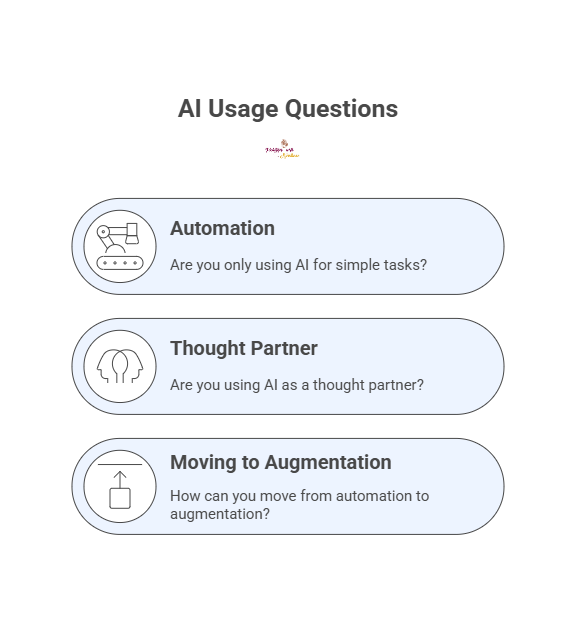Stop! You're Using AI Wrong.
Why the way you use AI is creating a major economic divide.
"AI isn't about doing tasks faster; it's about thinking better. If we just automate, we lose." — Nadina D. Lisbon
Hello Sip Savants! 👋🏾
The digital age moves at a breakneck pace, and we’re witnessing a prime example with the unprecedented speed of AI adoption. A new report from Anthropic, the "Anthropic Economic Index September 2025"¹, has shed light on this technological revolution, revealing that AI is being adopted faster than past innovations like the internet or personal computers. But while the speed is impressive, the report's findings raise critical questions about who is actually benefiting from this rapid advancement and if it is truly a tide that lifts all boats.
3 Tech Bites
📚 Evolving User Patterns
The way we use AI is changing rapidly. The report found that while coding remains a dominant use case for Claude, there is a significant rise in educational and scientific tasks. Users are also increasingly using the AI for "directive" tasks. Essentially delegating entire projects for completion, signaling a new level of trust in the technology's capabilities.
🌍 The Global AI Divide
The report reveals a strong correlation between a country's income and its per-capita AI usage. High-income nations like Singapore and Canada are leading the charge, while emerging economies lag behind. This data points to a potential for AI to concentrate benefits in already-wealthy regions, raising a red flag about the future of global economic equality.
⚙️ Automation vs. Augmentation
Not all AI use is created equal. The report distinguishes between "automation," where AI completes a task, and "augmentation," where humans and AI collaborate. It found that countries with lower adoption rates tend to use AI primarily for automation, while high-adoption countries show a more diverse set of applications and an increased preference for augmentation. For businesses, the report suggests that the value of automating a task is a more significant driver of adoption than cost.
5-Minute Strategy
🧠 What's Your AI EQ?
The Anthropic report highlights two modes of AI use: automation and augmentation. Let’s audit your own AI habits. Ask yourself:
Am I only using AI to automate simple tasks?
(e.g., generating social media posts, summarizing basic text).Am I using AI as a thought partner?
(e.g., brainstorming a complex strategy, refining a creative idea, or debugging code collaboratively).How can I move from automation to augmentation?
Identify one area in your work or studies where you can use an AI tool to go deeper and produce something truly new or innovative, rather than just completing a chore.
1 Big Idea
💡 The Human Cost of Progress
While the speed of AI adoption is remarkable, the Anthropic report's findings on the "uneven geographic adoption" and its potential to exacerbate global economic inequality is a wake-up call. We've seen this pattern before with transformative technologies of the 1990s. The benefits of the industrial revolution and the rise of the internet didn't distribute themselves evenly, and this led to significant wealth gaps. We face a similar, if not more accelerated, risk today.
The core issue isn't the technology itself, but the human-centered decisions that govern its creation and distribution. If access to powerful AI tools remains a luxury of the few, the world's innovation hubs will pull further ahead, leaving others behind. This creates a moral and ethical imperative for developers, policymakers, and companies. We must actively work to bridge this divide.
How do we ensure equitable access? It's a question of open-source models, accessible educational resources, and a global commitment to digital literacy. The "AI Divide" is not a foregone conclusion; it is a problem we can, and must, solve. The report's open-sourced data is a step in the right direction, encouraging independent research and holding a mirror to our collective responsibility. The future of AI should be one of shared prosperity, where technology serves to uplift all of humanity, not just the privileged few.
Share your thoughts!
P.S. Know someone else who could benefit from a sip of CRM wisdom? Share this newsletter and help them brew up stronger customer relationships!
P.P.S. If you found these AI insights valuable, a contribution to the Brew Pot helps keep the future of work brewing.
Resources
Sip smarter, every Tuesday. (Refills are always free!)
Cheers,
Nadina
Host of TechSips with Nadina | Chief Strategy Architect ☕️🍵



Very insightful like always, I have always thought of AI as an augmentation of ourselves to help problem solve and "bounce" ideas or thoughts off of. It's great for feedback and criticism(generally) but full blown automation seems to be where it falls behind or disappears completely. It most definitely should be as open source as possible and freely available.